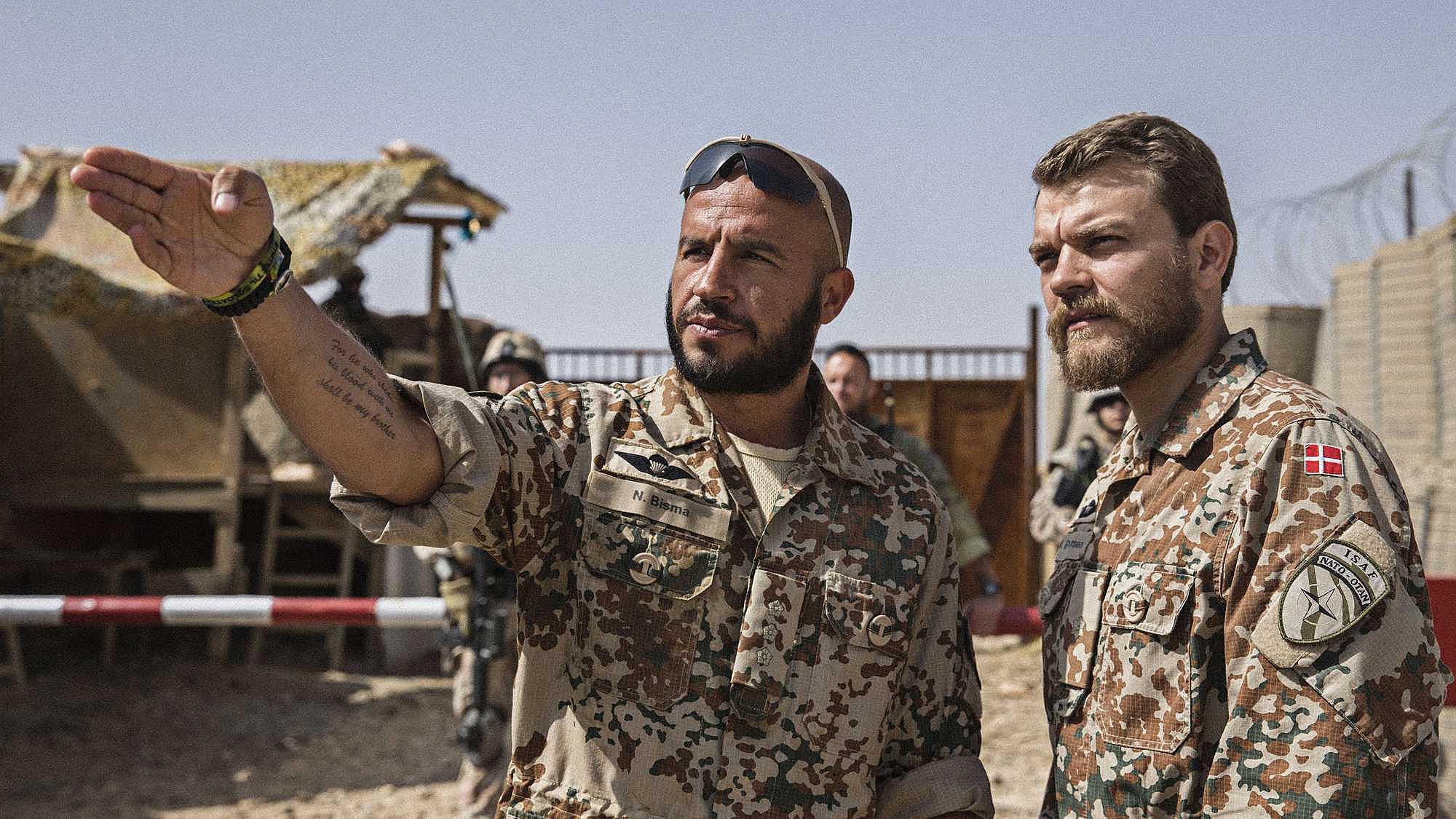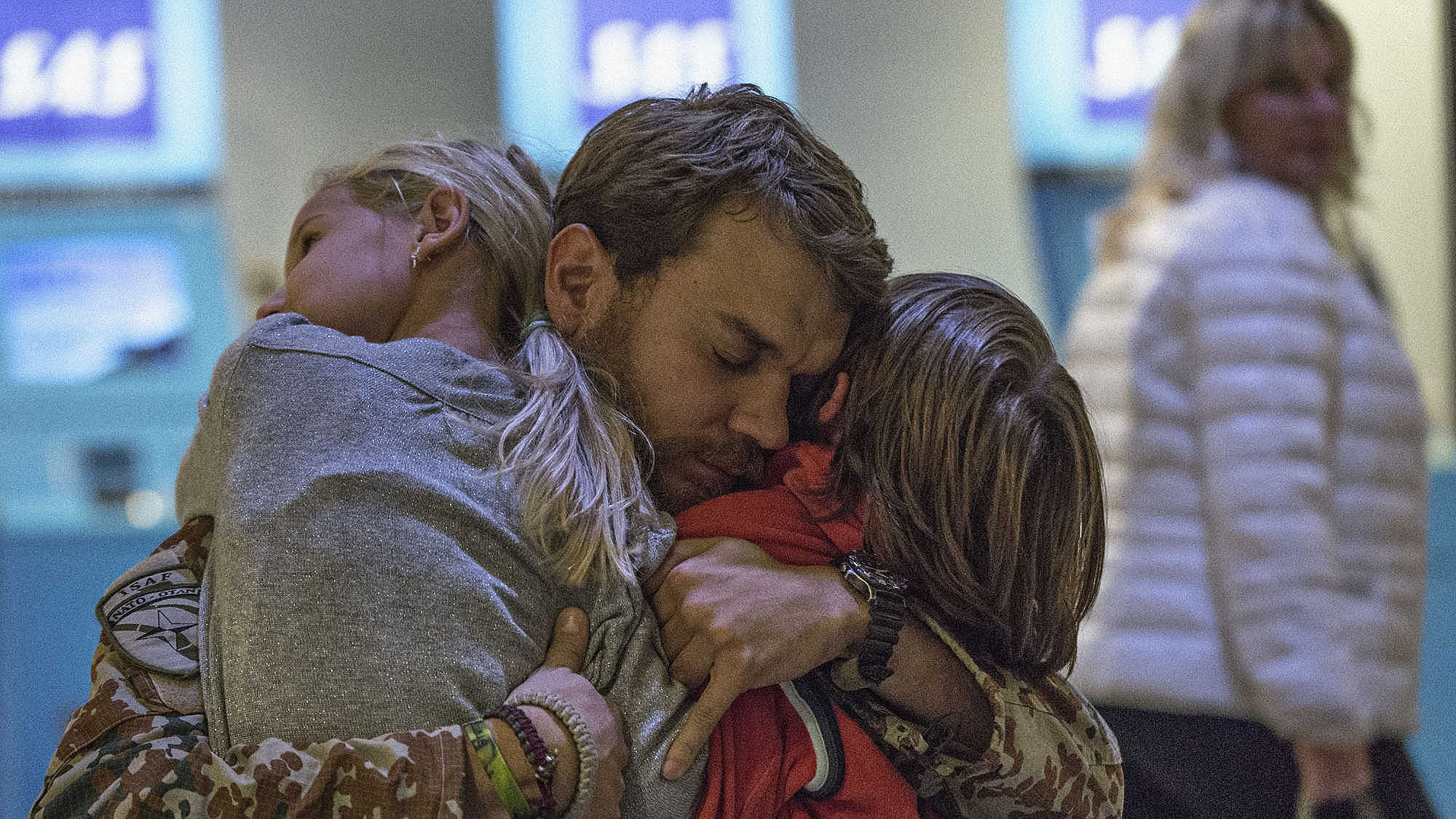Review: A War
Decisions made in heat of the moment can have unintended, far-reaching consequences. A War presents a confronting tale of a good man who makes a grave mistake and asks: who pays the costs?
Decisions made in heat of the moment can have unintended, far-reaching consequences. A War presents a confronting tale of a good man who makes a grave mistake and asks: who pays the costs?
In A War, Danish director Tobias Lindholm interrogates the psychological effects of the most recent iteration of war in Afghanistan. He's arrived somewhat late to a grisly party: Lindholm’s ‘Afghanistan film’ enters the fray a full five years after several standout documentaries have covered the same conflict. We had Restrepo (2010) from journalist Sebastian Junger and (the late) photojournalist Tim Hetherington, which documented their year embedded with an American unit in the Korengal Valley. Then, in 2011, Danfung Dennis gave us a single soldier, Sgt. Nathan Harris, who struggles to reconcile civilian life with his military experience in Hell and Back Again. Fellow Dane, Janus Metz Pedersen, had already documented something of the Danish military experience in Afghanistan in 2010’s Armadillo, a disturbing portrait of young men adrift in a conflict in which they struggle to understand their part. With an existing range of searching, unsentimental, non-fiction filmmaking already in existence, does Lindholm — with his fiction feature — have anything new to say?
As A War progresses, you begin to wonder if this is the right question to be asking. The film mimics documentary cinematography by use of a handheld camera and close follow shots, and we get the sense that we're with the soldiers as they scout village compounds for threats. In this, and other ways, A War does justice to its setting, even going so far as to have actual soldiers playing members of the unit in question. And yet the film isn't primarily concerned with the conflict in Afghanistan. Lindholm seems less interested in the specifics of the context in which the action occurs than he does in the paradox of personal versus corporate human ethics that arise from within this milieu. But despite this oblique use of Afghanistan as a setting — Lindholm could have a achieved the same thematic exploration in any war zone but he did pick this one — what A War does do is function as a reminder. This conflict, which is increasingly being designated as historical, is actually still ongoing. It is not a distant memory to be analysed for the local populace or the various peacekeeping troops still stationed there, but a living reality, and even sideways efforts to keep this place and these people in the international consciousness can only be welcomed.
What A War does do is function as a reminder. This conflict, which is increasingly being designated as historical, is actually still ongoing. It is not a distant memory to be analysed for the local populace or the various peacekeeping troops still stationed there, but a living reality
Some might recognise Lindholm from his work on political drama series Borgen (he wrote the first two of three seasons) but may have noticed a shift in his storytelling approach of late. He mentions in a 2013 interview with (the now defunct) IdeasMag about how his perspective on writing feature films differs from writing for television: he sees the process of writing films as journeying with a single character “from beginning to end” versus television’s observation of many characters “from different angles” over time. It may be too early to say whether Lindholm has developed a distinct authorial signature as a filmmaker, but A War — his third full length film as writer-director — certainly mirrors the tone and structure (and title form) of his previous feature, A Hijacking, as well as his writing style on countryman Thomas Vinterberg’s The Hunt (2012). A Hijacking and A War both follow interconnected narrative threads in two disparate locations. Characters directly involved in extraordinary conflict are contrasted with colleagues and loved ones at a distance who are mired in the mundane everyday. Both films present protagonists with a murky ethical dilemma and mine dramatic tension from the psychology of their decision making. In A War, this plays out alternately through the eyes of Danish army company commander Claus Pedersen (Pilou Asbæk) who is coming towards the end of a tour in the Helmand province of Afghanistan and through Claus’s wife Maria (Tuva Novotny) struggling with the pressures of family life back in Denmark where their three children—the middle boy in particular — are feeling the absence of their father.
While it’s not unusual for films to illustrate the effects of dramatic events on those connected to the protagonist, few give almost equal treatment to these outer circles. Lindholm is as interested in Maria and the children as he is with ostensible focal point Claus. How Claus’s absence affects the family unit is clearly shown, and later plays heavily into the film’s crux point. In Afghanistan, Claus is shown to be a competent and empathetic leader: the kind of leader who engages respectfully with the local populace; the kind of leader who does whatever he can to make life easier for his men. It’s this very quality that leads to problems when, in the film’s second act, he comes under scrutiny for deadly decisions made to protect his men while under heavy fire on a particularly challenging patrol that he should never have been out on. Upon returning home to Denmark, Claus and Maria’s narratives combine and their dual situations are brought to a head.
Much like rising German director Christian Petzold with Nina Hoss, Lindholm continues a strong actor-director partnership with lead performer Pilou Asbæk (a recent addition to Game of Thrones playing Euron Greyjoy), who has headed the cast in each of the filmmaker’s three fiction features. Asbæk’s sympathetic demeanour and expressive performance are well-matched with Lindholm’s tendency to focus on his characters’ internal struggles in high-stakes scenarios: we’re forced to mutually weigh the immediate and overarching consequences brought about by Claus’s decisions. The costs to his family are right in front of us but what of the less tangible costs of eschewing justice? If the film ends a little abruptly, the process is worthwhile, challenging us to consider how we make decisions when we have competing interests. A Hijacking may be the more compelling film, but A War is a strong follow up in Lindholm’s ongoing investigation of individual and corporate responses to crisis.
A War is at the New Zealand International Film Festival


